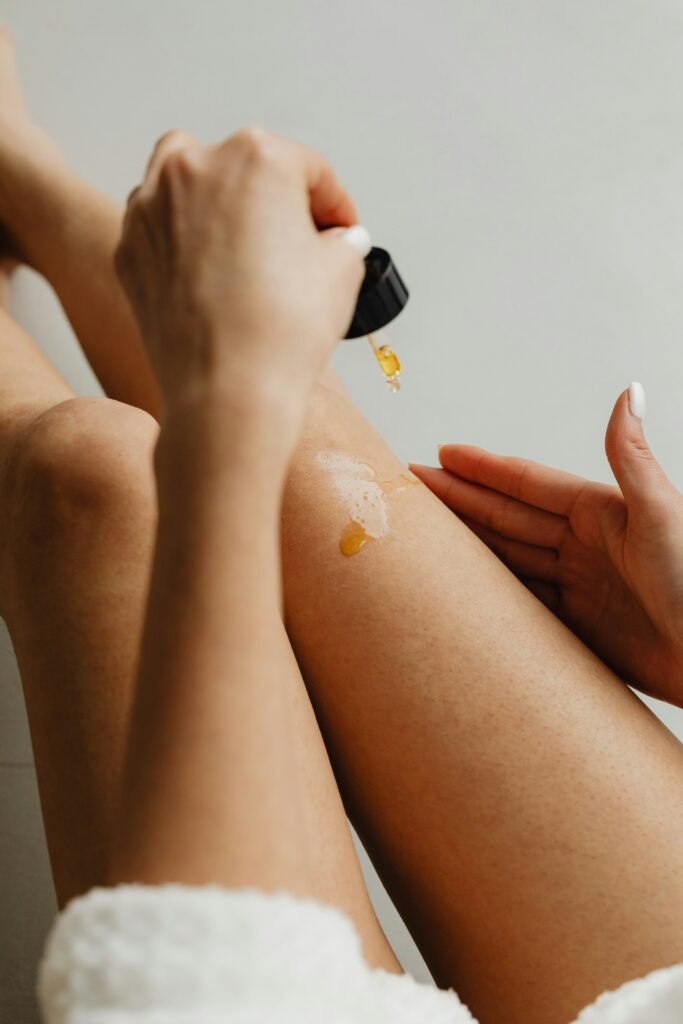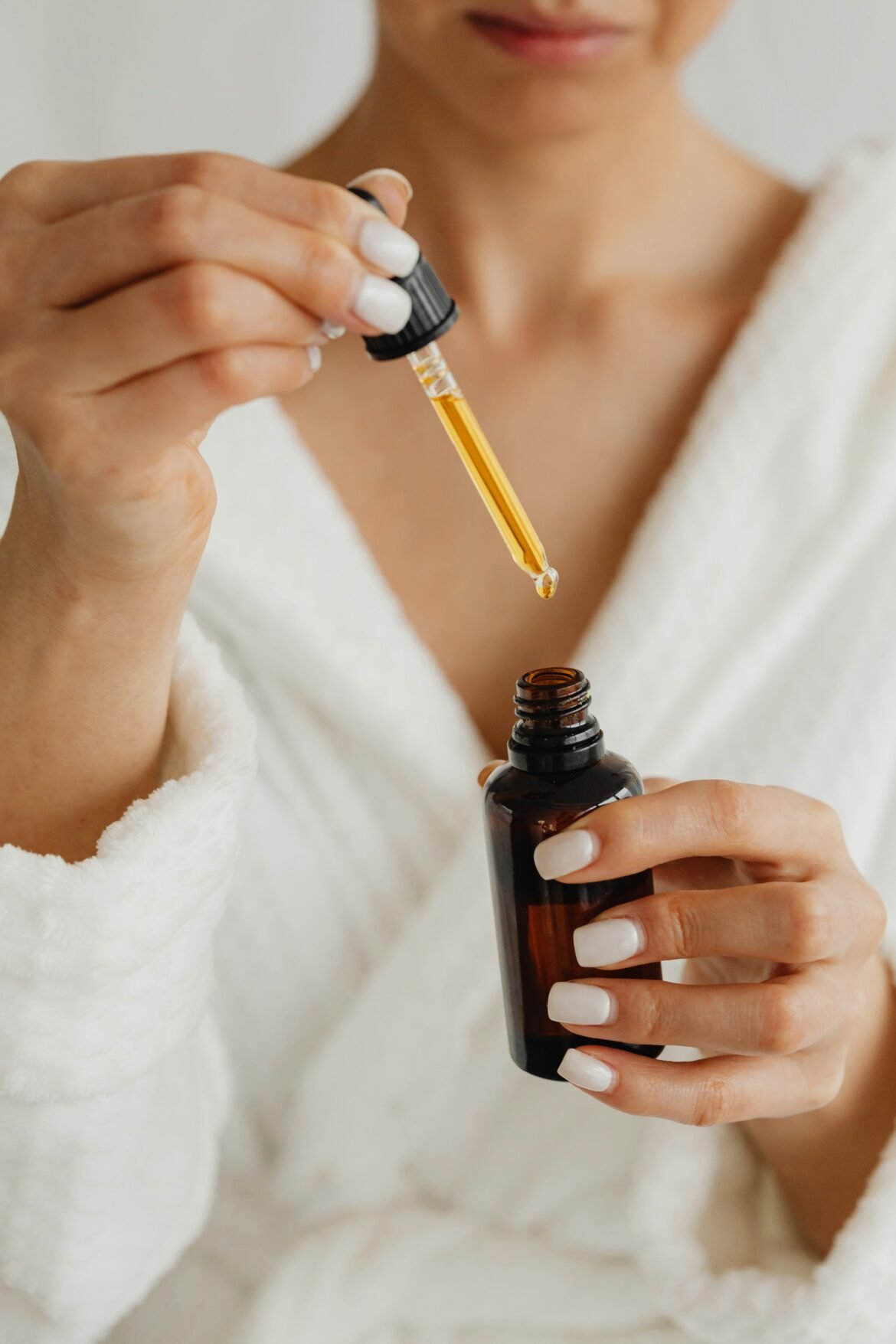The Natural Oils I Swear By for Skin & HairThe Natural Oils I Swear By for Skin & Hair
How I Ended Up Ditching the Beauty Aisle
Have you ever stood in front of a shelf full of fancy beauty products, completely overwhelmed? That was me a few years back, staring at bottles that promised miracles but usually delivered frustration—and a lighter wallet. My skin was reactive, my hair felt lifeless, and honestly, I was tired of playing beauty roulette.
One evening, in my tiny bathroom with harsh overhead lighting, I caught sight of my reflection and thought: there has to be something simpler. That’s when I remembered what my grandmother used to do. She didn’t have serums with names she couldn’t pronounce. She had oils—plain, natural, straight from the kitchen or the apothecary.
So, on a whim, I massaged a little coconut oil into my brittle ends. The softness was instant, almost shocking. It was better than the $40 serum sitting on my shelf. That one experiment sent me down a rabbit hole of natural oils, and I haven’t looked back since.
Now, instead of a bathroom cluttered with dozens of bottles, I have a small collection of oils that cover almost every skin and hair need. They’re simple, effective, and timeless. And the best part? My body actually seems to recognize them—like it knows exactly what to do with the nutrients they provide.

Why Oils Feel So Different
The beauty industry loves to complicate things. Multiple steps, endless products, and ingredient lists that look like chemistry homework. Oils strip all that away. One ingredient, often cold-pressed and unrefined, and suddenly your skin and hair feel nourished in a way lotions and serums never quite achieved for me.
What I’ve learned is this: our skin naturally produces oil (sebum), so when we use oils that mimic that composition, they absorb beautifully instead of sitting on the surface. It’s not about slathering your face in grease—it’s about choosing the right oil for the right purpose.
And these oils aren’t a new fad. Cultures around the world have used them for centuries: argan in Morocco, olive in the Mediterranean, castor in India, rosehip in Chile. Science is only now catching up to what tradition always knew: these plant-based elixirs are packed with antioxidants, fatty acids, and vitamins that truly feed skin and hair.
My Go-To Oils (and Why I Love Them)
Over the years, I’ve tried plenty, but a handful have earned permanent spots in my routine:
- Coconut Oil – My savior for dry ends and an amazing overnight hair mask.
- Jojoba Oil – Balances skin without clogging; it’s closest to our natural sebum.
- Argan Oil – Smooths frizz and adds shine without feeling heavy.
- Rosehip Oil – My evening ritual; it brightens skin and fades little marks.
- Sweet Almond Oil – Perfect body oil post-shower, especially for dry patches.
- Tea Tree Oil – A natural spot treatment for breakouts (always diluted).
- Grapeseed Oil – Lightweight and great for summer hydration.
- Castor Oil – My lash and brow booster; I swear it works over time.
- Olive Oil – Yes, from the kitchen! A wonderful nail and cuticle treatment.
The beauty of these oils is that each one is multi-tasking. Rosehip isn’t just for the face—it works wonders on scars. Coconut can be used for hair, body, even removing makeup. Instead of shelves packed with single-purpose bottles, I now have fewer, smarter staples.
The Family Conversion Story
At first, my obsession with oils was just that—mine. My husband teased me endlessly: “You’re putting olive oil on your face? What’s next, balsamic vinegar?” He was loyal to his three-in-one body wash and didn’t see the appeal.
That changed one brutal winter. His skin was flaking so badly it hurt, and no lotion helped. I handed him a bottle of jojoba oil and told him to just try it for a week. The transformation was almost immediate. His skin calmed down, and the dryness vanished. Now he’s the one reminding me to restock when the bottle gets low.
The funniest part? He started telling his gym buddies about argan oil. I nearly choked on my tea the first time I overheard him explaining how it’s “great for the beard, bro.”
Even my teenage niece, who was battling acne and self-esteem struggles, gave oils a try when she visited. A few weeks after I sent her home with tea tree and jojoba, she texted me a selfie—barefaced and glowing, more confident than I’d ever seen her. That’s when I realized: these oils aren’t just beauty hacks. They’re tiny acts of self-care that ripple out into confidence and connection.
How I Use Them (Without Complicating My Life)
I keep it simple:
- Morning – A splash of cool water, then 2–3 drops of jojoba pressed into damp skin. Quick, hydrating, and a perfect base for sunscreen.
- Evening – After cleansing, I warm rosehip oil between my palms, breathe in the earthy scent, and massage it in. It feels like a ritual, not a chore.
- Hair – Once a week, I coat my ends with coconut oil, wrap it in a towel, and let it soak while I read or do chores. The shine afterward is unreal.
- Body – Almond oil after showers—locks in moisture better than any lotion I’ve bought.
- Extras – A drop of tea tree diluted in grapeseed oil on the occasional breakout; castor oil brushed on brows at night.
The key isn’t complicated recipes—it’s consistency and using pure, cold-pressed oils. I keep them in amber glass bottles away from heat and sunlight so they stay potent. And honestly? A little goes a long way. One bottle often lasts me months.
Tips I’ve Learned Along the Way
- Always patch test before diving in. Even natural ingredients can irritate.
- Quality matters: look for cold-pressed, organic, unrefined whenever possible.
- Don’t be afraid to mix. A few drops of tea tree in jojoba makes a great spot treatment.
- Adjust seasonally. Grapeseed in summer, richer oils like olive in winter.
- Less is more. Start with a drop or two—you can always add more.
Substitutions & Variations
- Sensitive to coconut oil? Try almond or avocado oil instead.
- Want lighter hydration? Grapeseed or squalane sink in fast without heaviness.
- Acne-prone? Hemp seed oil is amazing—it moisturizes without clogging pores.
- Living in a humid climate? Stick with lighter oils (argan, grapeseed). In dry weather, go richer (olive, almond).
And if sustainability matters to you, look for oils from ethical sources—like Moroccan women’s cooperatives producing argan, or jojoba farms committed to eco-friendly practices.
Why I’ll Never Go Back
What keeps me loyal to oils isn’t just the glow (though I won’t lie—it’s pretty great). It’s the simplicity. My beauty routine used to feel like a juggling act. Now, it’s stripped back, effective, and—dare I say—joyful.
These oils remind me that beauty doesn’t have to be complicated. It doesn’t have to come with a huge price tag or an intimidating list of chemicals. Sometimes, the best solutions are the ones nature already perfected centuries ago.
So if you’re standing in that beauty aisle feeling overwhelmed, maybe skip it. Start small—pick one oil, try it consistently, and see what happens. Chances are, your skin and hair will thank you. And who knows? You might just find yourself preaching the magic of jojoba oil to your friends one day too.

Frequently Asked Questions For Natural Oils
1. Won’t putting oil on my face cause breakouts?
Contrary to common belief, many natural oils (particularly jojoba, grapeseed, and tea tree) can actually help balance sebum production and reduce breakouts. The key is choosing non-comedogenic oils appropriate for your skin type.
2. How often should I use oils in my hair?
For most hair types, a weekly deep treatment with coconut or argan oil is sufficient. Those with very dry or damaged hair might benefit from twice-weekly applications, while those with fine hair may prefer lighter oils used less frequently.
3. Can I replace my moisturizer completely with natural oils?
Many people successfully use oils as their primary moisturizer. However, oils primarily seal in moisture rather than providing it, so applying to slightly damp skin or using a hydrating toner first maximizes benefits.
4. Do natural oils have SPF protection?
While some oils (like raspberry seed oil) have minimal natural SPF properties, none provide sufficient sun protection. Always use dedicated sunscreen products for UV protection.
5. How long do natural oils stay fresh?
Most carrier oils remain effective for 6-12 months when stored properly in dark glass containers away from heat and direct sunlight. Essential oils typically last 1-2 years. Watch for changes in smell, appearance, or texture.
6. Can I mix different oils together?
Absolutely! Creating custom blends allows you to address multiple concerns simultaneously. Start with a base carrier oil (like jojoba or grapeseed) and add smaller amounts of specialized oils for targeted benefits.
7. Are expensive oils always better quality?
Not necessarily. Price often reflects factors like sourcing methods, extraction processes, and brand positioning. Focus on indicators like “cold-pressed,” “unrefined,” and “organic” rather than price alone.
8. Can men use these same oils?
Definitely! Men’s skin and hair benefit equally from natural oils. Many men particularly appreciate the simplicity of oil-based routines compared to multiple specialized products.
9. Is it normal for oils to smell different from brand to brand?
Yes, natural variations in growing conditions, extraction methods, and refinement levels all influence scent profiles. Unrefined oils typically have stronger natural scents than refined versions.
10. Can I cook with the same oils I use for beauty?
Some oils like coconut and olive work beautifully for both culinary and beauty purposes. However, specialized beauty oils like rosehip are not typically food-grade and should be used externally only.
11. How can I prevent oil stains on pillowcases and clothing?
Apply oils at least 30 minutes before bedtime, allowing time for absorption. Using slightly less product and gently blotting excess with a clean cloth can also prevent transfer.
12. Can natural oils replace anti-aging serums?
Oils rich in antioxidants and essential fatty acids (like rosehip, pomegranate seed, and sea buckthorn) provide significant anti-aging benefits. While they may not contain concentrated active ingredients like retinol, many users find they deliver comparable or better results through consistent use.

